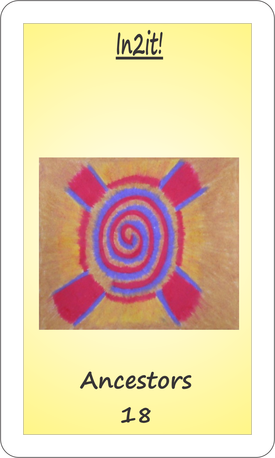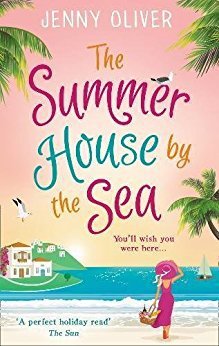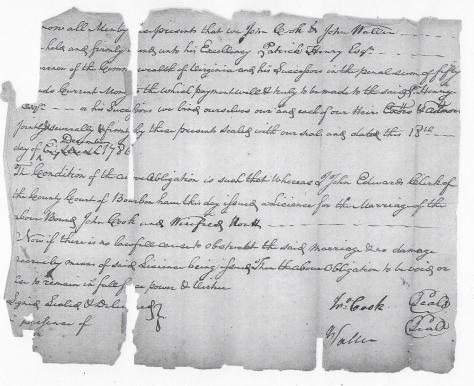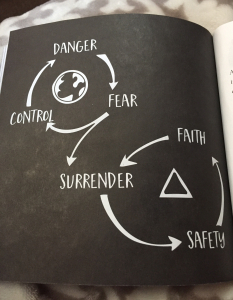Pinto, Jerry (2012), Em and the Big Hoom, Viking
ISBN 9787-0-670-92358-8
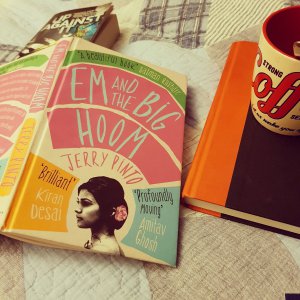 Ah, man. I’ll just say it. I thought this novel was awfully mediocre, on a multitude of levels – but it comes with a big bag of praise. The book is covered in huge blurbs, by the likes of Rushdie, Ghosh and Kiran Desai (well ok). This is a supposedly “profoundly moving” book – so when I tell you it’s mostly annoying, trite and sometimes offensive, I may be in the minority of readers. There are indeed moments where the book comes close to being moving; they are all towards the end. The book is about a mother and her son (there’s a daughter too, but Jerry Pinto, in what is symptomatic for the whole book, includes her as a kind of afterthought, most of the time, as a plus one for the frankly unbearable narrator and protagonist. When the mother dies (it’s not really a big spoiler), Pinto’s narrator slips into a slightly different tone, offering a simulacrum of moving, elegiac narration. This fits, in turn the blurb by Kiran Desai, who made a career (and got a booker winning book) out of offering a pale simulacrum of specific tones and moods popular in English-language Indian fiction (I have some remarks on that genre here). Maybe I wasn’t in the right mood to read this, but at this point I feel as if I am merely picking reasons not to stick to my initial impression. Because, man. This book is lifeless, cold, with a tinge of misogyny and general awfulness. The prose isn’t that hot either. The dialogue is often interesting, with some intriguing touches involving the titular “Em” sometimes borrowing American turns of phrases, but the non-dialog prose moves from banal triteness to trying to engage that register of cleverness, that tradition that runs from G.V. Desani to Rushdie – a specific kind of linguistic playfulness. Yet, as we see in the latter half of Rushdie’s work, that kind of writing requires a special skill and literary alertness – neither of which Pinto appears to possess. With so many books in the world, I cannot come up with a single reason why anyone should pick up Em and the Big Hoom, and honestly, I am not entirely happy I did so myself.
Ah, man. I’ll just say it. I thought this novel was awfully mediocre, on a multitude of levels – but it comes with a big bag of praise. The book is covered in huge blurbs, by the likes of Rushdie, Ghosh and Kiran Desai (well ok). This is a supposedly “profoundly moving” book – so when I tell you it’s mostly annoying, trite and sometimes offensive, I may be in the minority of readers. There are indeed moments where the book comes close to being moving; they are all towards the end. The book is about a mother and her son (there’s a daughter too, but Jerry Pinto, in what is symptomatic for the whole book, includes her as a kind of afterthought, most of the time, as a plus one for the frankly unbearable narrator and protagonist. When the mother dies (it’s not really a big spoiler), Pinto’s narrator slips into a slightly different tone, offering a simulacrum of moving, elegiac narration. This fits, in turn the blurb by Kiran Desai, who made a career (and got a booker winning book) out of offering a pale simulacrum of specific tones and moods popular in English-language Indian fiction (I have some remarks on that genre here). Maybe I wasn’t in the right mood to read this, but at this point I feel as if I am merely picking reasons not to stick to my initial impression. Because, man. This book is lifeless, cold, with a tinge of misogyny and general awfulness. The prose isn’t that hot either. The dialogue is often interesting, with some intriguing touches involving the titular “Em” sometimes borrowing American turns of phrases, but the non-dialog prose moves from banal triteness to trying to engage that register of cleverness, that tradition that runs from G.V. Desani to Rushdie – a specific kind of linguistic playfulness. Yet, as we see in the latter half of Rushdie’s work, that kind of writing requires a special skill and literary alertness – neither of which Pinto appears to possess. With so many books in the world, I cannot come up with a single reason why anyone should pick up Em and the Big Hoom, and honestly, I am not entirely happy I did so myself.
To start at the beginning: Em and the Big Hoom is a novel about an Indian family – a mother, “Em,” a father, nicknamed “the Big Hoom,” and the two children, the male narrator and “Susan.” Em is mentally ill, or so the novel insists. She has some form of manic depression, and has had it for years and years. She has lived through a number of suicide attempts, but she also hears voices apparently, and God knows what else Jerry Pinto dug up in his grab bag of mental illness issues. The novel’s bulk is set in a hospital as the narrator questions his mother about her choices in life, why on earth she was such a bad, bad mother, but he also elicits stories from her about her past. This narrative set up is the reason why the novel, like Em’s mind, feels a bit unmoored, there’s no real present to hold on to, as Pinto doesn’t really offer broad descriptions of the ward and their interactions in it either. His focus is almost completely on the two elements: the reproachful dialogue and the many, many flashbacks. I think there’s a skill required for this kind of set-up to be convincing, and not come off dull, and Pinto doesn’t have it. Although, I will say, this is a debut novel, and many debut novels suffer from this ungrounded, overexcited kind of structure. That said, Pinto steers his novel onto well-trod paths, the excitement cannot come from covering new terrain. For example, Marilynne Robinson’s Housekeeping, though I do not hold her into the same esteem as many friends who think she should be winning the highest literary honors, is a small, fine book about the aftermath of maternal suicide. Robinson makes good use of the reality of nature, of objects, houses, things, in short, as a way to root and situate her characters. Loss and disorientation are given meaning by giving the reader a sense of direction within the novel itself. Pinto isn’t particularly interested in that, and so the book becomes a diatribe against the fictional mother. I think the only mother I remember being this sharply condemned is Evelyn Waugh’s Brenda Last whose “Thank God” upon learning of her son’s death has long since engraved itself in our memories.
In contrast to Waugh, Pinto isn’t interested in painting Em as a deceitful person. Em is merely selfish. Pinto described mental illness, but, underneath, what he’s really talking about, is selfishness. Em is painted as someone who indulges her whims, with her husband and children suffering. There’s an episode where the family finds out that Em has spent all the money in a savings account that was supposed to support the family in the case of the father’s death, and she explains how it is connected to trust, and to anxiety, but neither the narrator, nor the rest of the family can muster any sympathy or empathy for Em. This is nor per se a comment on Pinto’s skills. Indeed, part of what made the narrator so galling in this and other scenes is the clear depiction of the mother’s objections. He does not offer a caricatured crazy woman. This is no drunk Janice Angstrom drowning her daughter in a tub, as Updike, he of the misogynist streak, constructed her for his own protagonist, “Rabbit” Angstrom. At the same time, Em never gets her due, and if the reader isn’t entirely sure what the book’s own stance towards its narrator is, the kind, sometimes even moving, final portions of the book dealing with grief and the aftermath, quickly disabuse us of any notion that we are offered the son’s blindness critically. Neither son nor husband are interested in that woman that lives among them. There’s precious little talk of anything that resembles therapy – instead we hear a lot about various kinds of medication, culminating in a scarring electro-convulsive therapy treatment. This, incidentally, is how we have always talked about depression and similar mental illnesses, and the current movement to “finally” treat mental illnesses like “normal illnesses” and the open way to discuss medication, while usually painted as progressive, is, in actuality, like some other current social “progressive” movements, anything but. Instead what we are given is a family who doesn’t really care why their mother and wife does what she does, they pathologize her, criticize her, talk down to her, culminating in the son yelling at his wife “Shut up you disgusting bitch!”
That is worth looking at for a second. He apologizes, but it is a difficult apology because his mother won’t show him that she is hurt by it, implying that it is the hurt, not the substance of the insult that needs apologizing for. But what’s more, this outburst comes after the mother jokes about his work, or rather, about the money he makes and that he still lives at home. This declaration so mortally wounds his masculinity that he “could not remember ever being so violated and hurt.” That is quite something for an adult to say, who immediately insults his mother worse than she’d ever dream of insulting him – what’s more, her treatment at the hands of neighbors (who suspect her of stealing a child when she walks around daydreaming, holding her son), the police (who arrest her), the mental health professionals (take your pick), and her family. If condescending to someone is such a vicious insult, they all need to rethink their lives. But this scene helps in other ways too. It highlights the strange masculine assumptions, the narcissistic ride that this narrator is on. Telling him he doesn’t make enough money to move out is a mortal insult, but in a later section, he very simply assumes the only reason his sister will move out is that she marries. And that’s not even the strangest instance of blindness in this scene.
Shortly after he insults his mother, she makes a sharp joke involving the insult: “can the disgusting bitch make you some tea?” She then writes a note of apology for what she said, and signs it, “the disgusting bitch.” From her son? Nothing but silence. The night after this, Em has a breakdown, has to be moved to the hospital, where she is again visited by her Gold Star son, and greets him with “I went mad, so you don’t have to be. You don’t have to do anything now that I am the disgusting bitch.” You’d think, huh, this is all pretty clear, but this is how the narrator reads the situation now: “I looked at her carefully. She was not letting me see what she was thinking. So I knew, immediately, that she had registered the thoughtless insult and that it had mattered. She was not going to give me proof so there was no way I could actually apologize. But I tried. ‘I’m sorry I said that.’” I mean this is special. Apart from the bad prose, it’s woth noting that THIS is when he knows, “immediately,” that his mother “registered” the insult. Not when she used it twice the previous day. Not when she wrote an embarrassing note of apology that she should not have written. Not when she had a mental breakdown immediately afterwards. No, now, the third time she mentions it, her son has an epiphany, but still, he can’t “actually” apologize because his mother won’t give him “proof” it hurt her. None of the things I listed count as proof. God knows what would be “proof” in his eyes. Tearful recriminations? This scene is an exception in some ways, but it does show, especially since there are continuities to the motherless time of grief towards the end, viz. Susan, for example, how the narrator – and in some sense the novel as a whole – conceive of women and mothers. I mean, if this novel was based on one or more real women (and some details in it tell me she is, or Pinto did some research), I can pinpoint pretty exactly how Em got to where she ended up. Em is a clever, independent, unusual woman with an unquiet mind, surrounded by people who like “quirky” women as background noise, not as a disruptive force. Em eventually commits suicide, and while you shouldn’t point a finger when it comes to suicide and mental illness, in this case you could at least raise an inquisitive eyebrow while looking at that son.
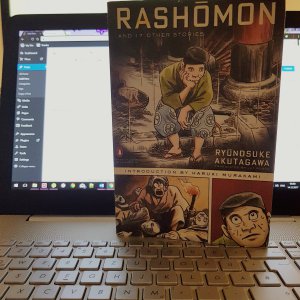 The worst failing here is the lack of introspection, the lack of real vulnerability. As I close this review, I’d like to point to another example. It’s from Ryunosuke Akutagawa’s autobiographical writings. I won’t pretend I found this myself – confounded by the praise (particularly Ghosh’s. I admire his fiction so much!) on the book cover, I looked for and found an appraisal of the (then unpublished) manuscript on Amitav Ghosh’s blog, where a user pointed to these stories in the comments to the blog post, which, as luck would have it, are contained in my volume of Akutagawa’s short fiction. Akutagawa’s appraisal of his own mad mother is also harsh and sharp. In “Death Register” he writes: “My mother was a madwoman. I never did feel close to her as a son should towards his mother.” When his mother, after wasting away for a while, opens her eyes on her deathbed to announce the end, “we couldn’t help giggling” despite feeling sad. The details chosen in the few remarks are exquisite. In another short prose piece he goes on and on about never being breastfed by his mother. Pinto’s narrator expresses anxiousness about whether his mother’s “madness” (I’m not super sure about that diagnosis) can be inherited. Akutagawa, on the other hand, is aware that he has. He jokes in other prose pieces about being unconcerned about the dangers of insomnia, after all, it’s “nothing new for the son of a madwoman.” As readers, we could take him being as cutting about his mother as Pinto’s narrator is because we are shown his own vulnerability, and unlike in Pinto’s novel, this is real, poetically expressed, artistically heightened, vulnerability.
The worst failing here is the lack of introspection, the lack of real vulnerability. As I close this review, I’d like to point to another example. It’s from Ryunosuke Akutagawa’s autobiographical writings. I won’t pretend I found this myself – confounded by the praise (particularly Ghosh’s. I admire his fiction so much!) on the book cover, I looked for and found an appraisal of the (then unpublished) manuscript on Amitav Ghosh’s blog, where a user pointed to these stories in the comments to the blog post, which, as luck would have it, are contained in my volume of Akutagawa’s short fiction. Akutagawa’s appraisal of his own mad mother is also harsh and sharp. In “Death Register” he writes: “My mother was a madwoman. I never did feel close to her as a son should towards his mother.” When his mother, after wasting away for a while, opens her eyes on her deathbed to announce the end, “we couldn’t help giggling” despite feeling sad. The details chosen in the few remarks are exquisite. In another short prose piece he goes on and on about never being breastfed by his mother. Pinto’s narrator expresses anxiousness about whether his mother’s “madness” (I’m not super sure about that diagnosis) can be inherited. Akutagawa, on the other hand, is aware that he has. He jokes in other prose pieces about being unconcerned about the dangers of insomnia, after all, it’s “nothing new for the son of a madwoman.” As readers, we could take him being as cutting about his mother as Pinto’s narrator is because we are shown his own vulnerability, and unlike in Pinto’s novel, this is real, poetically expressed, artistically heightened, vulnerability.
I mean, I understand, there’s a chance all of these critiques are part of the text, and not brought to the text by me. Since there’s no outside voice, there’s a chance that Pinto created a misogynist protagonist who drives his mother into mental breakdowns on purpose. But there’s no textual evidence for that. What’s more likely is that Pinto shares this view of mental illness as this foreign country, with those afflicted by it outside of normal empathy and he shares this view of women, particularly since the Big Hoom isn’t much better, and as an author, he’s given Susan a marginal existence in the book. I mean, on the penultimate page of the book, he has Susan being fond of her tupperware, and telling the two men after the wake: “I’m going to clean up. You two go.” Because of course. Pinto has skills, many of them in the dialogue, but most of all, he’s given me a wish to know more about Em. For a novel with her in the title, we learn precious little about her. In my head I thought her voice could be a variant of the protagonist of Lydia Millet’s My Happy Life. I mean we don’t know. And that’s the problem. Well, there’s also the prose. There’s always the prose.
As always, if you feel like supporting this blog, there is a “Donate” button on the left and this link RIGHT HERE.

